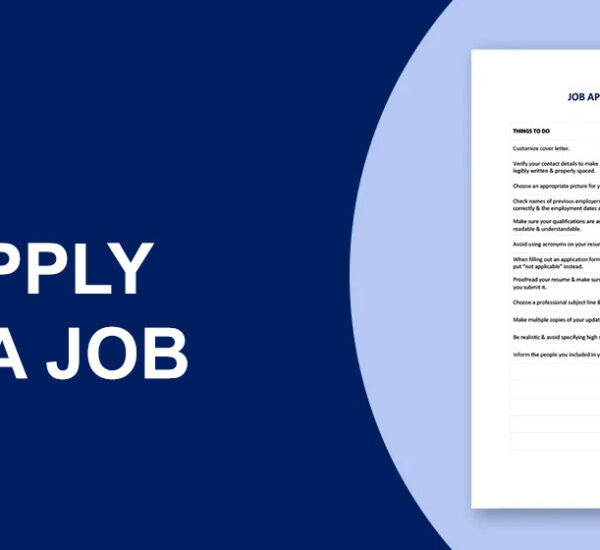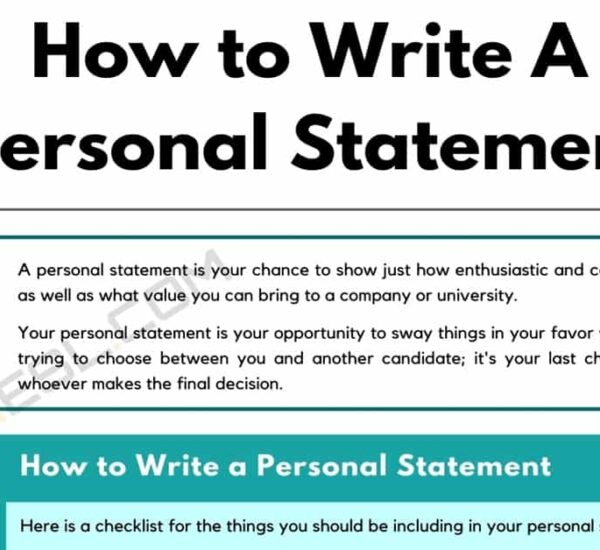When preparing to study abroad in the UK, don’t underestimate the importance of writing your Statement of Purpose! Your SOP tells the academic institution to which you are applying who you are and what sets you apart from other students.
Has it been a while or is this your first time writing an SOP? Don’t worry! We are protecting you. Read on to learn how to write your Statement of Purpose.
Things to include in your Statement of Purpose
Your purpose statement should use your unique experiences to introduce yourself and explain why you will be a positive addition to the course you are applying to. Answering questions like the following can help you build the structure of your SOP:
Who are you?
Why are you a good candidate for this course?
Why are you applying for this specific course?
Where do you want your education to take you?
How will your past experiences and education help you succeed?
Why are you choosing this institution, specifically?
Take this opportunity to be creative and deepen your experiences! Do your best to avoid overly general or cliché statements.
Whatever you do, don’t copy someone else’s SOP. You risk having your UK student visa refused if the admissions team suspects you have cheated.
Tips to Consider
Now that you know what to include in your purpose statement, here are some essential tips to consider before you start writing:
Avoid copying other people’s work or experiences. Plagiarism is not worth it. Also, your own experiences are unique!
Mention plans to return home. Comply with visa rules and regulations and do not mention any plans you may have to remain in the UK after completing your course.
Take plenty of time to write and edit your SOP. Don’t start at the last minute! Reviewing your SOP can help ensure that your spelling and grammar are correct and that your writing is easy to read and understand.
An example introduction to an SOP might look like this:
“My name is ___, and I’m applying to the Mechanical Engineering course at ___ University. I know I’ll be a great candidate for this course because of ___ and ___. I want to study in the United Kingdom, and specifically at ___ University, because of ___ and ___. After graduating with my degree, I plan to use my experiences to ___ and advance my career back home.”
Writing a Statement of Purpose
Start with an outline
First, ask yourself the following questions:
“Why do I want to study in the UK?”
“Why do I want to study in my course and institution of choice?”
“What experiences or prerequisites do I have that will help me in this course?”
“What will I have gained, once I return home after studying in the UK?”
After answering all these questions, try to focus on the academic or personal reasons for your answers. It’s a good idea to include your most valuable educational, professional, and individual experiences, whether from the distant past or more recently.
Tip: If you want your SOP to stand out from the crowd, it’s a good idea to incorporate a story element into your essay. Pick one or two strong examples to focus on, and engage your reader with specific details about how you felt and how those experiences informed your current learning and career goals.
Write a draft
It’s time to draw! After creating an outline, start writing an essay that includes:
An introductory paragraph. This tells the institution who you are and your specific background.
Body paragraphs. Each body paragraph should make a central point. List your experiences in chronological order.
Conclusion. This is a brief summary of all the information presented in your SOP. It’s also a great place to thank the person reading your application!
Keep most of the word count in the body paragraphs. Introductions and conclusions often need to be short and sweet. Also, check with your institution to confirm the preferred SOP word count.
Tip: Write your SOP in active voice. This makes your sentences easy to understand and your writing clear to readers.
Include supporting documentation
Do you want your SOP to really stand out? Go back to the experiences you listed, and for each experience included, include supporting documentation. This shows the academic institution that they have proof of your claims and that your educational background is accurate.
Not sure where to start? If you wrote about an achievement, complete it with awards or certificates. To learn more about your career, please include your resume with your updated employment history. Including financial support, and documentation is always a great idea, as well as medical documents to explain any gaps in the study.
Time to edit
You finally come to the end of your conclusion and sigh happily with relief. You finished!
But before you start playing video games or heading out for a night out with friends, wait a bit. You’re not done yet. You see, editing is an important step, if not the most important. Here are some tips to keep in mind:
Make sure everything in your essay is correct, and listed chronologically, and include supporting documentation where necessary.
Read it out loud to confirm that it sounds good and makes sense. It really helps!
Ask a friend or family member to give you honest feedback.
Editing your work is the key to an amazing SOP! Overlooked errors can be misinterpreted or appear sloppy. Spend enough time editing your SOP to make sure you’re covered!
Our step-by-step breakdown can help make writing your SOP a little less intimidating. Follow our guide and you’ll be well on your way to writing a great SOP. Good luck!


